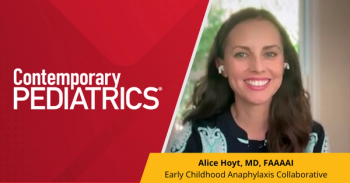Editor's Note: This article originally appeared on our sister website, Contagion Live.
In a six-month placebo-controlled trial, the administration of a daily oral probiotic containing Streptococcus salivarius failed to decrease the occurrence of acute otitis media (AOM) in children. Despite earlier indications that the probiotic reduces the relative abundance of otopathogens in the nasopharyngeal microbiome, the anticipated preventive effect did not materialize.
Suvi Sarlin, MD, from the Department of Pediatrics and Adolescent Medicine at Oulu University Hospital in Finland, along with colleagues, observed a demonstrated reduction in AOM with an investigational α-streptococcal nasal spray. They were optimistic that a similar outcome could be achieved with a commercially available oral probiotic marketed for "ear, nose, and throat health."
Highlighting the significance of AOM prevention in reducing antibiotic use among children, Sarlin and colleagues pointed out the limited options for primary prevention, excluding pneumococcal conjugate and influenza vaccines. The trial, conducted in 50 daycare centers in the Oulu region of Finland, involved 827 children aged 1 to 6 years. Participants were randomized in a 1:1 ratio to receive a daily dose of an S salivarius K12 oral product (chewable tablet for children over 3 years or oral powder for younger) or a placebo every evening after tooth brushing for six months.
Demographic characteristics were carefully balanced between the two groups, ensuring that any significant findings could be extrapolated to the larger population. Children receiving antimicrobial prophylaxis or having immunodeficiency were excluded from participation.
Key Takeaways
- Daily oral probiotics with Streptococcus salivarius did not diminish AOM incidence in children during the six-month trial.
- Primary prevention options for AOM are limited, emphasizing the importance of finding effective preventive measures.
- The study, encompassing 827 children aged 1 to 6 years in Finland, focused on the proportion of children with at least one episode of AOM within six months, requiring antimicrobial therapy.
- The primary outcome, involving episodes of AOM requiring antimicrobial therapy within six months, showed no statistically significant difference between the S salivarius group (8.2%) and the placebo group (5.8%).
- Secondary outcomes, including time to the first episode of AOM requiring antimicrobial therapy and the proportion of children with recurrent AOM, did not yield statistically significant differences.
- The investigators speculated on the potential efficacy of a nasal spray solution over oral preparations and considered the interference of L rhamnosus GG and P shermanii in the commercial S salivarius product.
- S salivarius K12 alone may be insufficient to counter significant otopathogens, such as Haemophilus influenzae and Moraxella catarrhalis.
- The study's context during the COVID-19 pandemic, marked by low circulation of respiratory viruses and a corresponding low AOM incidence, adds a nuanced layer to the findings, suggesting potential variations under different circumstances.
References
1. Sarlin S, Koskela U, Honkila M, et al. Streptococcus salivarius Probiotics to Prevent Acute Otitis Media in Children: A Randomized Clinical Trial. JAMA Netw Open. 2023;6(11):e2340608. doi:10.1001/jamanetworkopen.2023.40608
2. Sarlin S, Tejesvi MV, Turunen J, et al. Impact of Streptococcus salivarius K12 on Nasopharyngeal and Saliva Microbiome: A Randomized Controlled Trial. Pediatr Infect Dis J. 2021;40(5):394-402. doi:10.1097/INF.0000000000003016
3. Roos K, Håkansson EG, Holm S. Effect of recolonisation with "interfering" alpha streptococci on recurrences of acute and secretory otitis media in children: randomised placebo controlled trial. BMJ. 2001;322(7280):210-212. doi:https://pubmed.ncbi.nlm.nih.gov/11159619/








